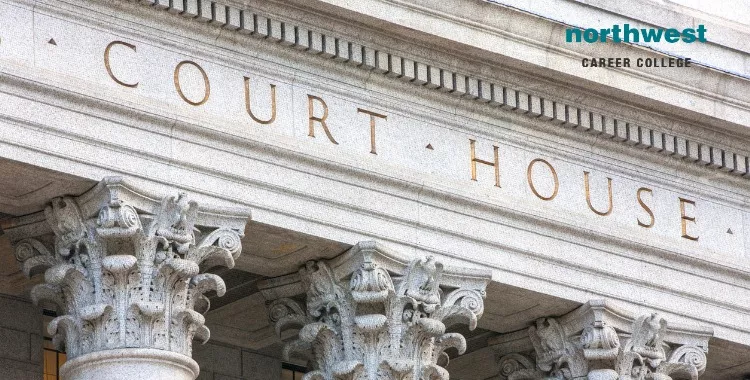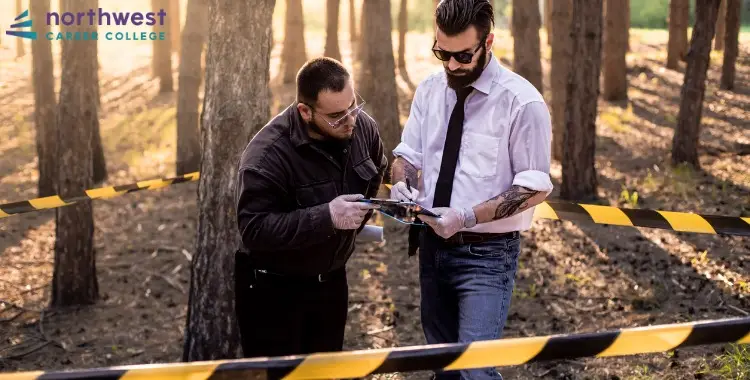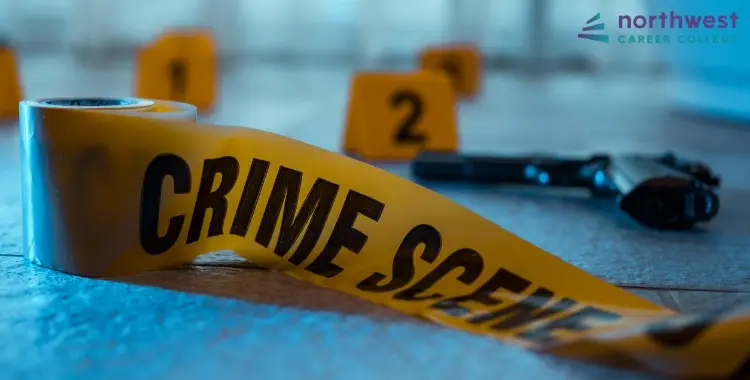Top 5 Court Terms That Every Criminal Justice Student Should Know
- Criminal Justice
- February 25, 2025
- 3.1k views
- 3 min read

The U.S court system and how it works is a key focus for criminal justice students. In fact, as part of our Criminal Justice Program, we schedule court visits to give our students as much exposure to the court system as possible.
One of the most confusing aspects of observing a court in session is the terminology that is used. The U.S court system is based on the British and French court system and has imported much of their legal jargon, some of it in Latin.
If you’re considering a career in criminal justice, here are some common court terms demystified.
Know More: What Is The Study of Criminal Justice?
Table of Contents
Court Terms That Every Criminal Justice Student Should Know
A Bench Trial
In a bench trial, the judge considers the facts of the case and the legal arguments attached to them. The judge then passes a ruling on the case. This is different from a trial by jury, where the judge oversees the case and the jury makes a judgment based on the facts and arguments they have heard.
A Binding Precedent
A binding precedent is a precedent that a court must abide by in its adjudication of a case. For example, a lower court is bound by the decision of a higher court in the same jurisdiction, even if the lower court judge disagrees with the reasoning or outcome of that decision.
This term often comes up when talking about the ruling of the U.S Supreme Court, which has wide-ranging powers to set binding precedents.
Chambers
Chambers are essentially the judge’s office. During a court case, representatives of both sides of a case may be called into chambers to discuss certain aspects of the case. These aspects commonly include discussing factors that may influence the fairness of a trial proceeding or just the logistics of a trial.
Default Judgment
If a defendant doesn’t appear in court when summoned, the judge may choose to resolve the case without you present. In effect, you’re found guilty because you never entered a defense. This most commonly happens in civil cases.
Inculpatory/Exculpatory Evidence
Inculpatory and exculpatory are two types of evidence. Inculpatory evidence establishes that a part is culpable, or responsible, for an action or outcome. It helps to establish guilt. Exculpatory does the opposite. It is used to establish innocence.
Know More: Purpose of the Criminal Justice system
Qualifying For Your Future
Gaining a qualification from our Criminal Justice School puts you in an excellent position to access a variety of employment opportunities as you look for one that suits your skills and interests.
At Northwest Career College, our Criminal Justice instructors include licensed, practicing attorneys and degree instructors able to teach, not only the law but also to guide our students in the many ways a criminal justice graduate integrates into a Las Vegas legal profession.
As part of our Criminal Justice Program, you’ll visit courts, jails, meditation centers, and more to experience first-hand the law in action, which will make your criminal justice training applicable to the Las Vegas legal system.
Northwest offers a flexible blended program with all criminal justice classes Las Vegas law classes taught on campus by an attorney and general education courses offered online. Our experienced instructors are on-campus to review and support your learning experience at all times.
Call us at (702) 403-1592 to speak to one of our enrollment team about joining our Criminal Justice Program today!



